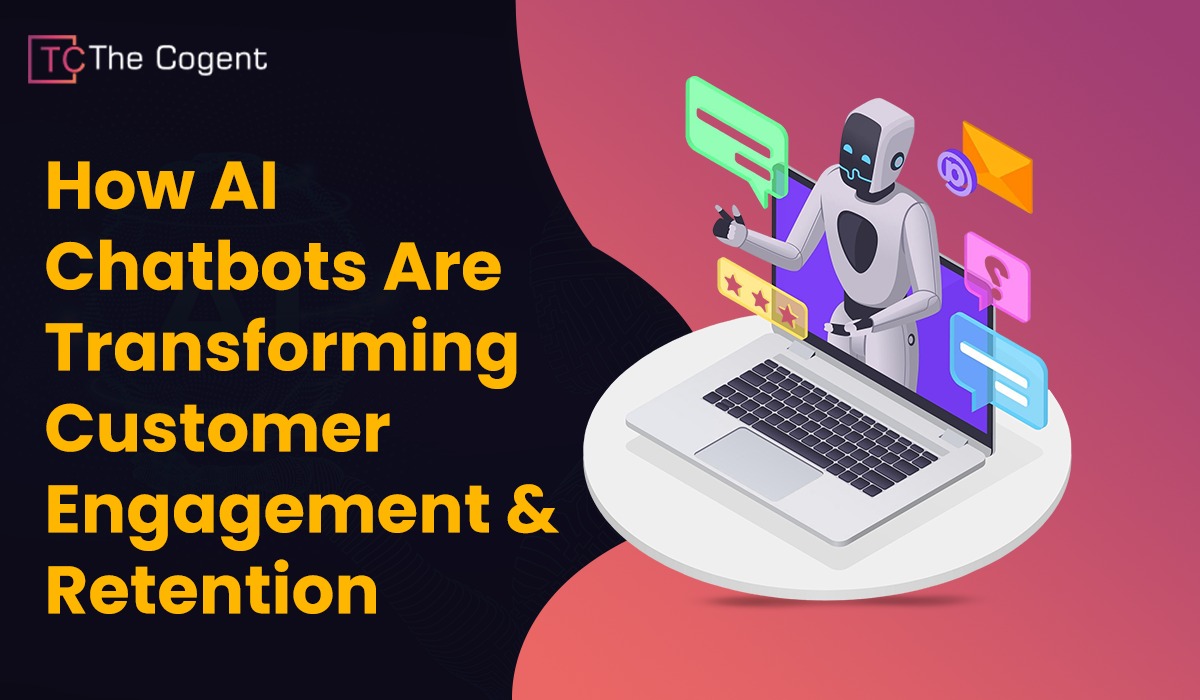1. Introduction
Prior to recent times customers would reach companies through phone calls or by visiting retail locations for assistance. Today, things are different. People expect rapid answers immediately and from any location. Customers wish to experience both special treatment and feeling known by the businesses they interact with. Artificial intelligence chatbots serve as the solution for this purpose.
The technology behind AI chatbots enables programs to maintain conversations with customers in a way that emulates human dialogue. These programs both speed up the answer process while providing personalized care to customers. Modern businesses establish relationships with customers through chatbot technology to maintain their customer base.
Real-time support stands as an essential requirement since customers need immediate assistance. Companies can maintain customer loyalty through this feature since customers do not move to alternative brands. AI chatbots provide efficient support services which are both friendly and accessible at all times.
2. What Are AI Chatbots?
The software program known as an AI chatbot enables human-machine communication that replicates natural conversations. Such artificial systems respond to inquiries by providing solutions and delivering information to users.
There are two main types:
- Rule-based chatbots
These follow simple rules and give basic answers. For example, if you type “Hi,” they reply with “Hello! How can I help you?” - AI-powered chatbots
These are smarter. The technology uses both Artificial Intelligence (AI) along with Machine Learning tools to gain knowledge and enhance its performance throughout its operation. They understand more complex questions and give better answers.
They also use something called Natural Language Processing (NLP) to understand how people talk or type.
AI chatbots often connect to CRM systems (tools used by companies to manage customer info), so they can talk to each person in a special way.
Industries using AI chatbots:
- Online shopping websites
- Banks and financial services
- Hospitals and clinics
- Schools and universities
- Travel and hotel booking platforms
3. Enhancing Customer Engagement with AI Chatbots
The implementation of AI chatbots enables customers to communicate with businesses through direct conversations that render them heard:
- Always available (24/7 support)
AI chatbots work all day and night. Even if a person needs help at 3 a.m., the chatbot is there to reply. - Personal replies
Chatbots can remember what you bought before or what you asked last time. This helps them give answers that are just right for you. - Talk in many languages
AI chatbots can speak and understand many languages. So no matter where someone is from, they can get help easily. - Talk on many platforms
The operating platforms for Chatbots include websites, mobile apps, Facebook Messenger, WhatsApp and numerous other platforms. The customer service department of the company can reach clients through multiple contact channels according to their preferences.
4. Driving Customer Retention Through Automation
Getting a customer is important. But keeping them is even more important. AI chatbots help companies keep their customers happy and loyal.
Here’s how:
- Reach out first
Sometimes, chatbots send helpful messages even before the customer asks. Like reminding someone about an order or offering a discount. - Quick help means happy customers
No one likes waiting. Chatbots answer fast and solve problems quickly, which makes people stay with the brand. - Ask for feedback
Chatbots ask customers what they think after a chat. This helps the company improve. - Understand customer habits
AI tools can look at what people do online and tell the company if someone might leave soon. This gives the company a chance to fix things and keep the customer.
5. Real-World Case Studies
Let’s look at some examples where AI chatbots helped companies:
- E-commerce brands
Some online stores added chatbots and saw customer satisfaction go up by 30%. People liked getting fast help with orders. - Banks
Many banks use chatbots to help customers check balances, report lost cards, or learn about loans. This saved time and made users happy. - Travel companies
Chatbots helped travelers rebook flights, ask about luggage, or get hotel info instantly — especially during busy travel times.
Results seen by these companies:
- Faster replies
- Higher customer happiness
- More customers returning again and again
- Better sales and customer value
6. Challenges and Limitations
AI chatbots are helpful, but they are not perfect.
Some challenges:
- They don’t always understand
If someone types in a very tricky or unusual way, the chatbot may get confused. - Privacy concerns
Chatbots store information. This must be kept safe. Companies must protect customer data and follow privacy laws. - Need for the human touch
Sometimes people just want to talk to a real human, especially for serious or emotional problems. Chatbots can’t always provide that feeling of care.
7. Future of AI Chatbots in Customer Experience
AI chatbots are getting better every day. Here’s what the future may bring:
- Talking bots (voice-enabled)
Chatbots may soon talk just like people on phone calls, using voice instead of text. - Better conversations with Generative AI
Chatbots will write smarter and more human-like messages. They will sound more real and helpful. - Fully connected customer journey
In the future, AI chatbots may help from the start (product questions) to the end (feedback after purchase), being there for the whole customer journey.
Businesses that use these smart bots now will be ready for the future.
8. Conclusion
AI chatbots are changing how companies talk to their customers. They help:
- Give fast answers
- Make customers feel special
- Keep customers coming back
- Save time and money for businesses
If companies want to grow and keep their customers happy, AI chatbots are a smart and simple solution. Now is the best time to use them and be ready for the future of customer care.
Frequently Asked Questions (FAQs)
The quick responses and constant availability along with personalized assistance create positive feelings in customers who choose to stay longer. Customer happiness increases while the duration of their stay becomes extended.
The main function of chatbots lies in simple tasks. Emotional and complex problems require human intervention even though AI achieves most tasks.
Yes! Small businesses together with websites benefit from chatbots because they provide immediate support that eliminates the need for a substantial employee base.
These systems run with Artificial Intelligence technology and Natural Language Processing together with Machine Learning capabilities. These help them understand and answer like humans.
These intelligent systems maintain customer satisfaction through rapid assistance as well as follow-up contacts combined with intelligent service delivery. Happy customers come back again.



